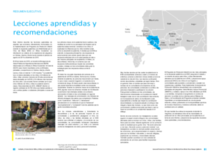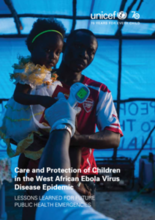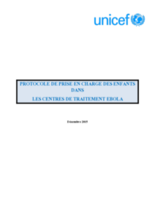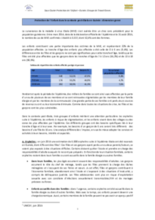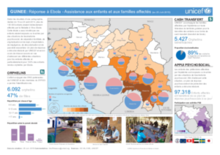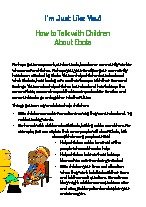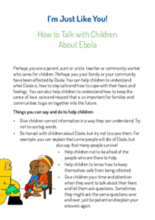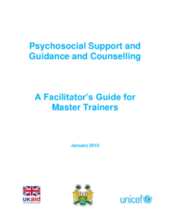This section includes resources on the response to the COVID-19 pandemic as it relates to child protection and children's care.
News on COVID-19 and Children's Care
Webinars and Events on COVID-19 Response
Displaying 731 - 740 of 756
On Monday, January 23, 2017, the Alliance’s Minimum Standards for Child Protection in Humanitarian Action (CPMS) Working Group organized and led the webinar “What have we learned from the child protection response in epidemics during the Ebola crisis?”
Este informe describe las lecciones aprendidas de aquellos que estuvieron directamente involucrados en la implementación del Programa de Protección Infantil durante la respuesta epidémica a la Enfermedad por el Virus del Ébola (EVE) en África Occidental.
This report examines three Ebola-affected countries – Liberia, Sierra Leone, and Guinea – to analyse the degree to which the response was successful in addressing the scale and unique nature of the child protection situation that arose due to the epidemic.
Le présent document sert de guide simplifié pour l’orientation des différents intervenants impliqués dans la prise en charge psychosociale des enfants en centre de traitement Ebola depuis l’accueil en passant par le séjour hospitalier de l’enfant et la gestion de sa sortie.
Dans le contexte post-Ebola, trois groupes d´enfants méritent une attention particulière: les "orphelins" suite à l´épidémie, les enfants à risque de stigmatisation, et les enfants vivant dans des villages ou des zones les plus affectées par l´épi
Selon les résultats d’une cartographie, réalisé du 16 au 24 août 2014, plus de 140 000 enfants etaient indirectement affectés par la Maladie à Virus Ebola en Republique de Guinee.
This paper combines data on the age distribution of current and projected mortality from Ebola with the fertility distribution of adults in Guinea, Liberia, and Sierra Leone, to estimate the likely impact of the epidemic on the number of orphans in these three countries.
This caregiver guide, which accompanies an illustrated children’s book, is written for the caregivers of children affected by the Ebola crisis.
This manual provides guidance on psychosocial support training in light of the Ebola outbreak in Sierra Leone.
Au moins 3 700 enfants de Guinée, du Libéria et de la Sierra Leone ont perdu un ou leurs deux parents à cause du virus Ebola depuis le début de l'épidémie en Afrique de l'Ouest, selon les estimations préliminaires de l'UNICEF, et nombre d’entre eux sont rejetés par les membres de leur famille qui ont survécu, par crainte de l'infection.

